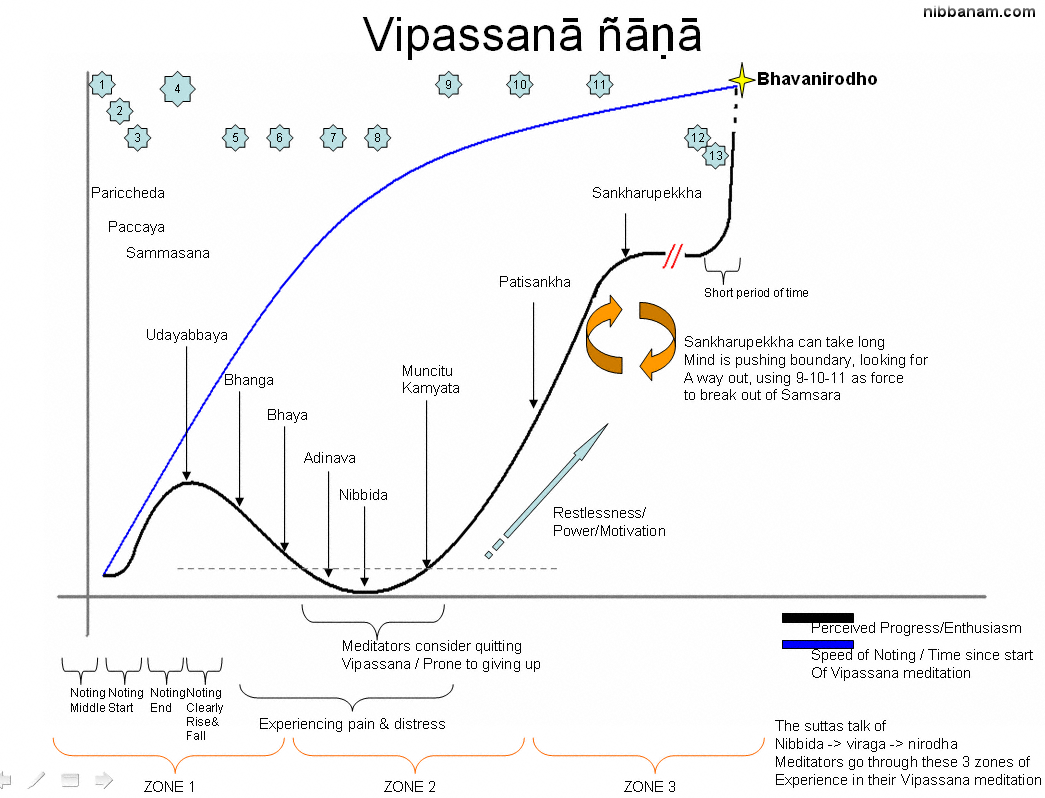Travis wrote:Ron,
Getting back to the OP (in light of some of the things discussed since) I wonder if the cropping up of the "dark night" has anything to do with the Mahasi-vipassana approach, or more precisely a common reaction to it? This is by no means to say that there is anything inherently wrong with the approach. From what I gather (ie not from personal experience) Mahasi-vipassana is generally characterized as an intense and rigorous system, so I wonder if this does not feed into the "western" propensity for excessive striving (which would explain why it is an experience found in Christianity, etc), or simply create an opening for the hinderances to arise and result in unskillful states of mind? Earlier I was reading about U Tejaniya, and it seems like his popularity (as an alternative to Mahasi Sayadaw vipassana) has increased for similar reasons. Thoughts?
-Travis
Hi Travis, I see your point and agree in some respects -Westerners are heavy-duty strivers and that leads to all sorts of problems. And the Mahasi noting technique can play into that in some unfortunate ways. But in my experience, intense striving as hinderance blocks a person from getting as far as the dukkha nanas. Striving (along with confusion about technique) usually keeps a person stuck back in the earliest insight stages (which are pretty relaxing if one would just stop striving). People can keep some striving going into the later stages, but keep in mind that each insight stage progresses through a process of letting go of the objects of the stage, so by the time a person gets to the dukkha nanas (which don't start until the 5th stage in the Mahasi system) they have already let go of a lot, have pretty good sila, and are cooking along pretty well.
I just read about U Tejaniya and love that practice! (Thanks Newb for posting the link). I don't see it as incompatible with noting or other rigorous practices though. Attitude is critical, and this is really where a teacher fits in. Having a direct living teacher that you can talk to and discuss things with is the most critical thing because it corrects all those attitude issues very quickly. The teacher's own attitude toward practice acts as an example of skillful means. You just can't learn that through reading.
Let me also mention that the dukkha nanas are not a product of the Mahasi noting system and are not a by-product of doing the practice in an incorrect way. They are a product of solid insight practice. Meditation masters in Theravada have recognized them and written explicitly about them for literally thousands of years. You can find them described in detail in the Visuddhimagga (through the links I've already provided) or if that doesn't go back far enough for you, then check them out in the Vittumagga, where the dukkha nanas start on page 299.
http://www.urbandharma.org/pdf1/Path_of ... imagga.pdf" onclick="window.open(this.href);return false;
And in the quote by the Buddha cited above, doesn't he describe ill-will arising in him and then seeing it clearly and then letting it go? This corresponds exactly to how the insight stages progress - taste the characteristic, watch it come and go, stop identifying with it and move on (the "Three Kinds of Full Understanding").
